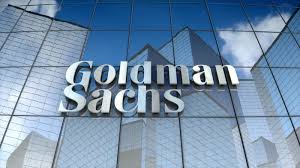The consumer price index, (CPI) which measures inflation increased by 11.44 percent (year-on-year) in December 2018. This is 0.16 percent points higher than the rate recorded in November 2018 (11.28) percent.
The CPI (Consumer Price Index) measures the average change over time in prices of goods and services consumed by people for day-to-day living i.e it measures the inflation rate.
According to the National Bureau of Statistics (NBS) Consumer Price Index for December 2018, month-on-month basis, the Headline index increased by 0.74 percent in December 2018, up by 0.06 percent points from the rate recorded in November 2018 (0.80) percent.
The percentage change in the average composite CPI for the twelve months period ending December 2018 over the average of the CPI for the previous twelve months period was 12.10 percent, showing 0.31 percent point from 12.41 percent recorded in November 2018.
The bureau noted that food index rose by 13.56 percent in December 2018 compared to 13.30 percent in November 2018. This was largely driven by increases in prices of soft drinks, Fish, Bread and Cereals, Oils and fats, Coffee, tea and cocoa, Meat, Milk, Cheese and egg, Vegetables, Potatoes, yam and other tubers.
The Statistics Bureau stated that food inflation on a year on year basis was highest in Abuja (16.50%), Bayelsa (16.23%) and Nasarawa (16.15%) in December 2018, while Oyo (10.79%), Cross River (10.57%) and Ogun (10.46%) recorded the slowest rise in food inflation.
However, Yobe (2.40%), Kebbi and Zamfara (2.36%) and Kaduna (2.35%) on a month on month basis recorded highest food inflation figures for December 2018, while Cross River, Edo, Kwara, Ogun and Oyo all recorded food price deflation or negative inflation in December 2018.
On month-on-month basis, the food sub-index increased by 0.81 percent in December 2018, down by 0.09 percent points from 0.90 percent recorded in November 2018.
The urban inflation rate increased by 11.73 percent (year-on-year) in December 2018 from 11.61 percent recorded in November 2018, while the rural inflation rate increased by 11.18 percent in December 2018 from 10.99 percent in November 2018.
On a month-on-month basis, the urban index rose by 0.76 percent in December 2018, down by 0.07 from 0.83 percent recorded in November 2018, while the rural index also rose by 0.72 percent in December 2018, down by 0.06 percent from the rate recorded in November 2018 (0.78) percent.
Core inflation stood at 9.8 percent in December 2018, maintaining the same rate recorded in November 2018 (9.8 percent).
On month-on-month basis, the core sub-index increased by 0.50 percent in December 2018. This was down by 0.18 percent when compared with 0.68 percent recorded in November 2018, with highest increases recorded in prices of domestic services and household services, Dental services, Garments, Narcotics, major household appliances whether electronic or not, Medical services, Cleaning, repair and hire of clothing and Tobacco.
In December 2018, all items inflation on year on year basis was highest in Bayelsa (13.32%), Zamfara (13.23%) and Ekiti (13.18%), while Kwara (9.12%) Ogun (8.71%), and Cross River (8.21%) recorded the slowest rise in headline Year on Year inflation.
On month on month basis however, December 2018 all items inflation was highest in Kebbi (1.72%), Kaduna (1.69%), and Zamfara (1.68%), while Ogun (0.07%) had the least with Kwara and Edo recording negative inflation or price deflation (general decrease in the general price level of goods and services or a negative inflation rate) in December 2018.
The National Bureau of Statistics, says the Consumer Price Index which measured inflation increased to 11.44 per cent (year-on-year) in December 2018 from 11.28 per cent recorded in November 2018.
The NBS disclosed this in its “CPI and Inflation Report’’ for December released in Abuja on Wednesday on its website.
The bureau said the figure was 0.16 per cent points higher than the rate recorded in November in the period under review.
It said the increases were recorded in all Classification of Individual Consumption by Purpose divisions that yielded the Headline index.
On a month-on-month basis, it said the headline index increased by 0.74 per cent in the period under review by 0.06 per cent points from the rate recorded in Nov. 2018 (0.80 per cent).
It said the percentage change in the average composite CPI for the 12 months period ended December over the average of CPI for the previous 12 months period.
It, however, measured the CPI at 12.10 per cent in the period under review, indicating a 0.31 per cent decline from 12.41 per cent recorded in November 2018.
According to the bureau, the urban inflation rate increased to 11.73 per cent (year-on-year) in Dec. 2018 from 11.61 per cent recorded in November of the same year.
It said the rural inflation rate also increased to 11.18 per cent in December 2018 from 10.99 per cent in November 2018.
On a month-on-month basis, NBS said the urban index rose by 0.76 per cent in the period under review, showing a decline of 0.07 per cent from 0.83 per cent recorded in November 2018.
Similarly, it said the rural index also rose by 0.72 per cent in December 2018, indicating a decrease of 0.06 per cent from the rate of 0.78 per cent recorded in November 2018.



